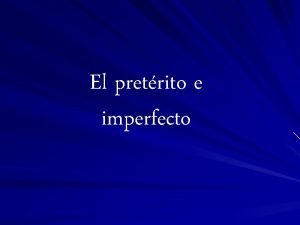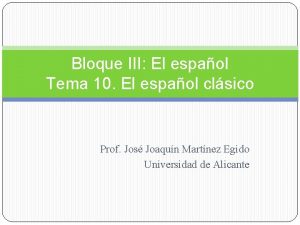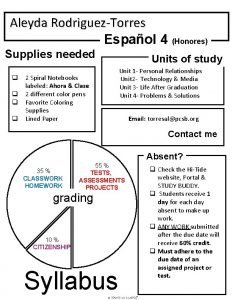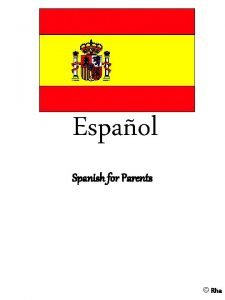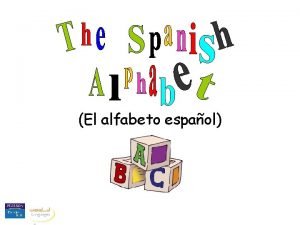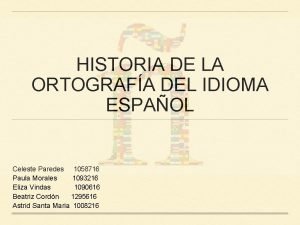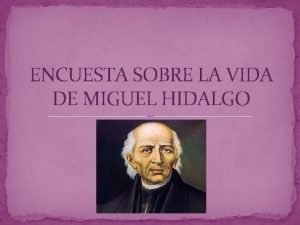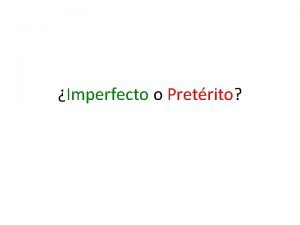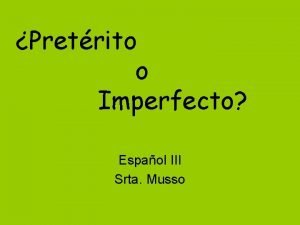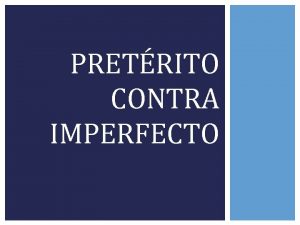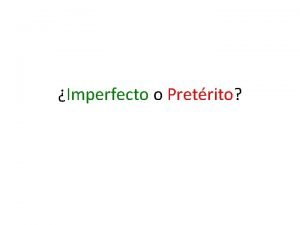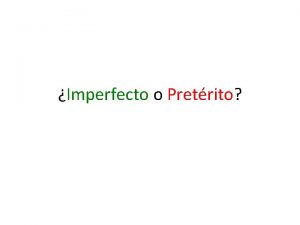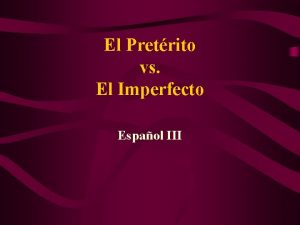El Pretrito y El Imperfecto Espaol III In








- Slides: 8

El Pretérito y El Imperfecto Español III

In Spanish two past tenses are used. How do we know when to use the preterite tense and when to use the imperfect tense? • Here are the reasons to use the imperfect tense: • On going action (something that was happening) • Yo estudiaba cuando mi hermano entró mi cuarto. • Two ongoing actions going on at the same time • Esa chica hacía la tarea mientras que yo dormía • What one used to do • Cuando yo era niño, jugaba con juguetes.

El imperfecto • Age • El hombre tenía 37 años. • Time on the clock • Eran las tres de la tarde • Weather • Hacía frío • Thoughts and Emotions • Ella estaba muy triste. • Name Ella se llamaba… • Physical Descriptions • El chico era alto y tenía pelo café!

El Pretérito • Quick/completed Actions that occur. (Main actions or events in a story. • Fui al mercado y compré comida para la cena • Actions that occurred at a specific time. • Estudié por cinco horas ayer. • Actions repeated a specific number of times. • Te llamé por teléfono tres veces anoche.

El Pretérito • On going actions that are interrupted; the interrupted actions are always in the preterit tense – Yo nadaba en el océano cuando mi hermano llegó a la playa. – Yo entré la clase mientras que el profesora hablaba

For both the imperfect and preterite tenses, there are trigger words. Here are some common trigger words for the imperfect and preterite • El imperfecto: • Siempre, normalmente, por lo general, usualmente, algunas veces, a veces, todos los días, nunca, mientras que…. . • El Pretérito • Anoche, ayer, el otro día, anteayer, el año pasado, el mes pasado, de repente…. . • Los verbos de empezar/terminar

Verbs that change meaning • • • Verb Querer Poder Conocer Saber P to try to manage to meet to find out I to want to be able to to know

¡Práctica! 1. 2. 3. 4. 5. 6. 7. 8. 9. 10. Cuando yo (era/fui) niña, saltaba la cuerda. Anoche mis amigos (salían, salieron) por las calles. Mi padre siempre (miraba, miró) la televisión. Yo (era/ fui) a la tienda tres veces ayer. La chica (tenía/ tuvo) trece años. Nosotros (hacíamos/ hicimos) la tarea el otro día. Mi maestro nos (gritaba/ gritó) a veces. Mi familia (veía/ vio) películas todos los jueves. El año pasado yo (estudiaba/ estudié) mucho. Ellos (estaban/ estuvieron) enojados con los resultados.
